#Brian C Muraresku
Text

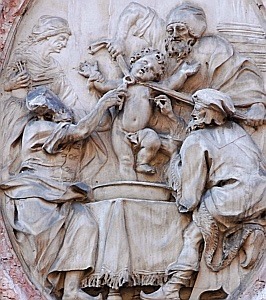
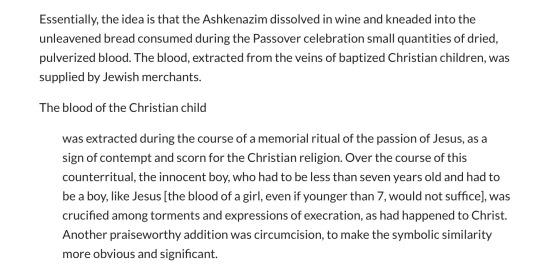
:::
#ashkenazi#adrenochrome#spirit cooking#abortion#war on kids#passover#Germany#nazi#war on humanity#BRIAN C. MURARESKU
2 notes
·
View notes
Text
The Immortality Key
BOOK REVIEWThe Immortality Key: The Secret History of the Religion with No Nameby Brian C. Muraresku 2020
About the AuthorBRIAN C. MURARESKU graduated Phi Beta Kappa from Brown University with a degree in Latin, Greek and Sanskrit. As an alumnus of Georgetown Law and a member of the New York Bar, he has been practicing law internationally for fifteen years. He lives outside Washington D.C. with…
View On WordPress
0 notes
Text
(PDF) The Immortality Key: Uncovering the Secret History of the Religion with No Name - Brian C. Muraresku
Download Or Read PDF The Immortality Key: Uncovering the Secret History of the Religion with No Name - Brian C. Muraresku Free Full Pages Online With Audiobook.

[*] Download PDF Here => The Immortality Key: Uncovering the Secret History of the Religion with No Name
[*] Read PDF Here => The Immortality Key: Uncovering the Secret History of the Religion with No Name
A groundbreaking, controversial dive into the role psychedelics have played in the human experience of the Divine and the development of religion throughout Western history.'THE IMMORALITY KEY' connects the lost, psychedelic sacrament of Greek religion to early Christianity?exposing the true origins of Western Civilization. In the tradition of unsolved historical mysteries like Grann's Killers of the Flower Moon and Preston's The Lost City of the Monkey God, Muraresku?s 10-year investigation takes the reader through Greece, Germany, Spain, France and Italy, offering unprecedented access to the hidden archives of the Louvre and the Vatican along the way.In 'THE IMMORALITY KEY', Muraresku explores a little-known connection between the best-kept secret in Ancient Greece and Christianity. A secret with the capacity to revolutionize our understanding of the past and chart a bold, new course for the future.Before Jerusalem, before Rome, before Mecca?there was Eleusis: the spiritual capital
0 notes
Text
Read The Immortality Key: Uncovering the Secret History of the Religion with No Name PDF BY Brian C. Muraresku
Download Or Read PDF The Immortality Key: Uncovering the Secret History of the Religion with No Name - Brian C. Muraresku Free Full Pages Online With Audiobook.

[*] Download PDF Here => The Immortality Key: Uncovering the Secret History of the Religion with No Name
[*] Read PDF Here => The Immortality Key: Uncovering the Secret History of the Religion with No Name
A groundbreaking, controversial dive into the role psychedelics have played in the human experience of the Divine and the development of religion throughout Western history.'THE IMMORALITY KEY' connects the lost, psychedelic sacrament of Greek religion to early Christianity—exposing the true origins of Western Civilization. In the tradition of unsolved historical mysteries like Grann's Killers of the Flower Moon and Preston's The Lost City of the Monkey God, Muraresku’s 10-year investigation takes the reader through Greece, Germany, Spain, France and Italy, offering unprecedented access to the hidden archives of the Louvre and the Vatican along the way.In 'THE IMMORALITY KEY', Muraresku explores a little-known connection between the best-kept secret in Ancient Greece and Christianity. A secret with the capacity to revolutionize our understanding of the past and chart a bold, new course for the future.Before Jerusalem, before Rome, before Mecca—there was Eleusis: the spiritual capital
0 notes
Text
...atheists and mystics both essentially believe in nothing. The only difference is that mystics spell it with a capital N.
Brian C. Muraresku, The Immortality Key: The Secret History of the Religion With No Name
#quote#Brian C Muraresku#The Immortality Key#The Secret History of the Religion With No Name#mysticism#religion#atheism#belief#gnosis#nothing#emptiness#anatta#negative theology
810 notes
·
View notes
Text
Fall Reading List
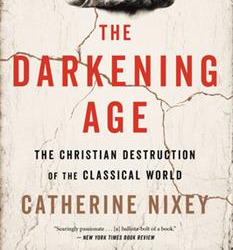
The Darkening Age : The Christian Destruction of the Classical World by Catherine Nixey
A New York Times Notable Book - A New York Times Book Review Editors' Choice Named a Book of the Year by the Telegraph, the Spectator, the Observer, and BBC History Magazine.
In Harran, the locals refused to convert. They were dismembered, their limbs hung along the town's main street. In Alexandria, zealots pulled the elderly philosopher-mathematician Hypatia from her chariot and flayed her to death with shards of broken pottery. Not long before, their fellow Christians had invaded the city's greatest temple, smashing its world-famous statues and destroying all that was left of Alexandria's Great Library. Today we refer to Christianity's conquest of the West as a "triumph." But this victory entailed an orgy of destruction in which Jesus's followers attacked and suppressed classical culture, helping to pitch Western civilization into a thousand-year-long decline. In The Darkening Age, Catherine Nixey brilliantly resurrects this lost history, offering a wrenching account of the rise of Christianity and its terrible cost. "A feast of tales of murder, vandalism and] willful destruction . . . Nixey has a great story to tell, and she tells it exceptionally well." -- Guardian " A] bold, dazzling and provocative book." -- Peter Frankopan, best-selling author of The Silk Roads.
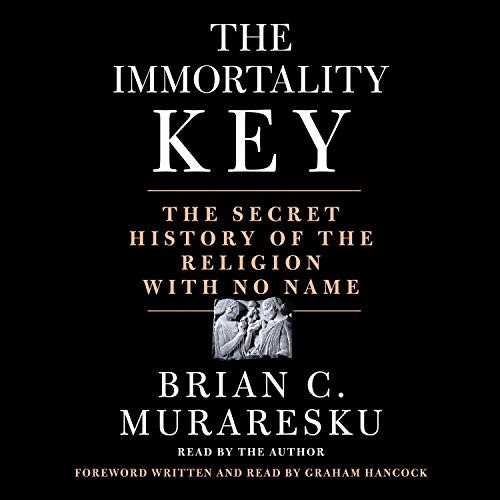
The Immortality Key : The Secret History of the Religion with No Name by Brian C. Muraresku
A groundbreaking, controversial dive into the role psychedelics have played in the human experience of the Divine and the development of religion throughout Western history. The Immortality Key connects the lost, psychedelic sacrament of Greek religion to early Christianity--exposing the true origins of Western Civilization. In the tradition of unsolved historical mysteries like David Grann's Killers of the Flower Moon and Douglas Preston's The Lost City of the Monkey God, Brian Muraresku's 10-year investigation takes the reader through Greece, Germany, Spain, France and Italy, offering unprecedented access to the hidden archives of the Louvre and the Vatican along the way. In The Immortality Key, Muraresku explores a little-known connection between the best-kept secret in Ancient Greece and Christianity. A secret with the capacity to revolutionize our understanding of the past and chart a bold, new course for the future. Before Jerusalem, before Rome, before Mecca--there was Eleusis: the spiritual capital of the ancient world. It promised immortality to Plato and the rest of Athens' greatest minds with a very simple formula: drink this potion, see God. Shrouded in secrecy for millennia, the Ancient Greek sacrament was buried when the newly Christianized Roman Empire obliterated Eleusis in the fourth century AD. Renegade scholars in the 1970s claimed the Greek potion was psychedelic, just like the original Christian Eucharist that replaced it. In recent years, vindication for the disgraced theory has been quietly mounting in the laboratory. The rapidly growing field of archaeological chemistry has proven the ancient use of visionary drugs. And with a single dose of psilocybin, the psycho-pharmacologists at Johns Hopkins and NYU are now turning self-proclaimed atheists into instant believers. With convincing analysis and a captivating spirit of quest, Muraresku mines science, classical literature, biblical scholarship and art to deliver the hidden key to eternal life, bringing us to what clinical psychologist William Richards calls "the edge of an awesomely vast frontier." Featuring a Foreword by Graham Hancock, the New York Times bestselling author of America Before: The Key to Earth's Lost Civilization.
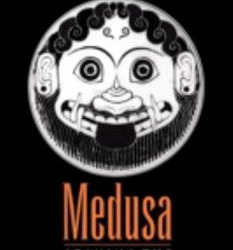
Medusa : Solving the Mystery of the Gorgon by Stephen R. Wilk
Medusa, the Gorgon, who turns those who gaze upon her to stone, is one of the most popular and enduring figures of Greek mythology. Long after many other figures from Greek myth have been forgotten, she continues to live in popular culture. In this fascinating study of the legend of Medusa, Stephen R. Wilk begins by refamiliarizing readers with the story through ancient authors and classical artwork, then looks at the interpretations that have been given of the meaning of the myth through the years. A new and original interpretation of the myth is offered, based upon astronomical phenomena. The use of the gorgoneion, the Face of the Gorgon, on shields and on roofing tiles is examined in light of parallels from around the world, and a unique interpretation of the reality behind the gorgoneion is suggested. Finally, the history of the Gorgon since classical times is explored, culminating in the modern use of Medusa as a symbol of Female Rage and Female Creativity.
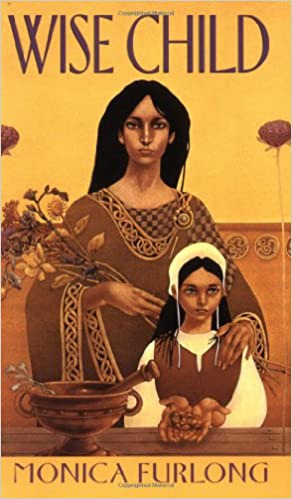
Wise Child by Monica Furlong
Children’s fiction. In a remote Scottish village, nine-year-old Wise Child is taken in by Juniper, a healer and sorceress. Then Wise Child’s mother, Maeve, a black witch, reappears. In choosing between Maeve and Juniper, Wise Child discovers the extent of her supernatural powers—and her true loyalties.
#immortality key#monica furlong#wise child#medusa#stephen r wilk#brian c muraresku#catherine nixey#classics#christian history#pagan history#kykeon#hellenic polytheism#reading list#hellenismos#ancient greece
44 notes
·
View notes
Text
Among the Ancient Greeks, wine is routinely described as unusually intoxicating, seriously mind-altering, occasionally hallucinogenic, and potentially lethal. In an age before distilled liquor, how was any of that possible? Why was Greek wine so strong? It’s well established that fermentation comes to a sudden halt when the alcoholic content of wine or beer approaches about 15 percent by volume. Most yeast can no longer survive past that natural barrier; they just die off, blocking any further production of the heady ethanol. So something else had to give ancient wine its infamous kick.
According to Ruck, the elixir known as trimma, that special wine mixed for the audience at the Theater of Dionysus we visited on the Acropolis, was only one such example of the Greeks’ psychedelic know-how. “The Greek language did not distinguish between madness and inebriation,” he writes in The Road to Eleusis, “because Dionysus was the god of all inebriants and not of wine alone.”
Indeed, if the Greeks had been so obsessed with alcohol, surely they would have invented a word for it. But they did not. Unlike the other 60 percent of the English language borrowed from Greek and Latin, our word “alcohol” comes from the Arabic al-kuhl (اَلْكُحْل). The root, kahala, can mean to “enliven” or “refresh.” Like the drinkers of the graveyard beer at Mas Castellar de Pontós, however, the Greeks wanted more than a light buzz. As mentioned earlier, the objective of the maenads or female devotees of Dionysus was the state of “divine frenzy” or “god-possessed inspiration.” Having been “filled with the spirit” of the God of Ecstasy and “acquired his divine powers,” the priestesses became “identified with the god himself.” Now that’s some kick-ass wine.
-- Brian C. Muraresku, The Immortality Key
45 notes
·
View notes
Photo

I love the opportunity to expand my perspectives, to learn from the painting and others that I admire. This is the second half of ‘The Temple’, a collaborative painting with my friend @shrineon . Our styles are drastically different and we love that. We’ve had the opportunity to work on paintings in various parts of the world together, the largest being a big mural at the Boom Festival 2014 in Portugal. This piece has been hanging in my studio for a decade and somehow it was time to finally complete it. Maybe it had to do with listening to the incredible book ‘The Immortality Key - the secret history of the religion with no name’ by Brian C. Muraresku, which I very much recommend. The temple is a place we deem sacred, and it comes in many forms. This temple transcends time and reminds me of something ancient and forgotten… as well as something to come. There is a mystery inside and I look forward to continuing to ponder what that is. For me, it has taught me to slow down… that the miracle is in the details if we take the time to really see. The painting is viewable at @peaceyogagallery in downtown Los Angeles. If you are interested in acquiring the original please send a DM - the majority of the funds will go to supporting the new non-profit project ‘Highway Sanctuary’ in Joshua Tree. Post 2 of 2 ‘The Temple’ 3 x 6’ - acrylic on canvas 2011-21 Collaboration between @shrineon & @amandasageart 💫 #collaboration #collaborativeart #visionaryart #shrineon #amandasage #templeofvisions #acrylicpainting #theimmortalitykey #temple (at Temple of Visions) https://www.instagram.com/p/CPUPgKCL1sD/?utm_medium=tumblr
#collaboration#collaborativeart#visionaryart#shrineon#amandasage#templeofvisions#acrylicpainting#theimmortalitykey#temple
3 notes
·
View notes
Text
youtube
https://youtu.be/gzAQ7SklDxo
...
...
Highlights:
youtube
https://youtu.be/XS5qjEXS6oM
...
...
youtube
https://youtu.be/Bum8BAIjc6o
...
...
#joe rogan#graham hancock#ergot#mushrooms#supernatural#dmt#psylocibin#james d tabor#Brian C. Muraresku#dionysus#gospel of john#dead sea scrolls#essenes#john the baptizer
2 notes
·
View notes
Text
Watch "Psychedelics and the Founding of Christianity (w/ Brian C. Muraresku)" on YouTube
youtube
0 notes
Quote
Once you’ve plunged into the ocean, does it really matter whether or not you believe in water?
Brian C. Muraresku
6 notes
·
View notes
Quote
Göbekli Tepe is now challenging all our assumptions about the hunters and gatherers who spearheaded the Agricultural Revolution, once thought incapable of such incredible feats of engineering. To put Göbekli Tepe in context, its megaliths predate Stonehenge by at least six thousand years. They predate the first literate civilizations of Egypt, Sumer, India, and Crete by even more. Unearthing this kind of Stone Age sophistication so deep in our past is like finding out your great-grandparents have been secretly coding apps and trading cryptocurrency behind everyone’s back. This once-in-a-century dig has turned the world of archaeology on its head. It was once thought that farming preceded the city, which in turn preceded the temple. God was supposed to come last, once our archaic ancestors had enough time on their hands to contemplate such impractical things. Schmidt’s 'cathedral on a hill,' however, demonstrates the exact opposite. Religion wasn’t a by-product of civilization. It was the engine.
Brian C. Muraresku, The Immortality Key
35 notes
·
View notes